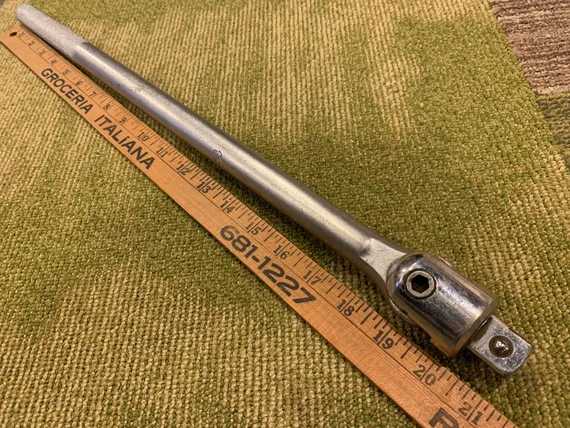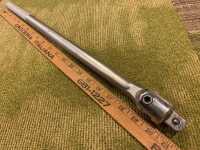
 
     |
| Using Loctite with suspension fasteners (Page 1/2) |

|
gregr75
|
JUN 15, 06:13 PM
|
|
I had such a horrible time disassembling my cradle, control arms, a lot of stuff was seized and rusted together and half the fasteners I had to sawzall off.
Im putting everything back together now, control arms, cradle, new struts and balljoints, new trans/engine mounts. To facilitate future dissasembly, I was initially going to use anti-seize but technically this reduces the coeff of friction and I think I'd have to reduce the recommended dry-value torques as recommended in the service manual to prevent possible bolt overloading.
Just learned about blue Loctite 242.. it does seem to prevent corrosion due to its gap filling capabilities and has the benefit of adding some locking strength, but able to be removed later. Anyone use this stuff?
|
|

|
theogre
|
JUN 15, 06:39 PM
|
|
Locktite is not Anti-seize or thread seal.
Coat the bolts where goes thru bushing sleeve etc w/ grease to prevent rust welding. This should not affect Dry Torque of bolts if you're careful so grease isn't on threads.
⚠️ Warning: many suspension hardware is Class 10.5 and above hardness. Equiv to SAE Grade 8 or higher. Means Bolts, Nuts and any Washers.
------------------
Dr. Ian Malcolm: Yeah, but your scientists were so preoccupied with whether or not they could, they didn't stop to think if they should.
(Jurassic Park)
The Ogre's Fiero Cave[This message has been edited by theogre (edited 06-15-2023).]
|
|

|
pmbrunelle
|
JUN 15, 07:13 PM
|
|
I often use Loctite 243 at work. 243 is the oil-tolerant version of 242.
In this Loctite document:
https://www.ellsworth.com/g...de-threadlocking.pdf
It is claimed that torque values do not need to be adjusted when using liquid threadlocker. I mostly agree with their claim.
I don't know how Loctite protects threads from corrosion in the field.
Some suspension fasteners need to be loosened and retightened during a wheel alignment. Tie-rod ends, ball joint bolts, strut-to-knuckle bolts, etc. These connections cannot use Loctite, because when the fastener is broken free / rotated, the Loctite is broken. So as a threadlocker I think it becomes less good, and as a weather seal, well the seal is broken.
I agree with Ogre's advice to coat bolt shanks with grease so they don't stick to steel sleeves.
Threads themselves can become seized, so it's nice to have something on the threads too.
I like using anti-seize on threads. It will still perform as anti-seize even if the fastener is rotated slightly. Yes, you probably need to torque the bolts 10% less than suggested in the manual.
If you keep turning a bolt, and the torque stops rising proportionally with rotation, that's because you're starting to yield the bolt. At the first hint of yielding, stop! Don't continue torquing to try to hit the value in the manual. The feeling for this comes with experience.
|
|

|
Patrick
|
JUN 15, 07:26 PM
|
|
| quote | Originally posted by pmbrunelle:
If you keep turning a bolt, and the torque stops rising proportionally with rotation, that's because you're starting to yield the bolt. At the first hint of yielding, stop! Don't continue torquing to try to hit the value in the manual.
|
|
Damn, is that why I keep snapping brake bleeders while snugging them up with my 3/4" breaker bar? 

|
|

|
theogre
|
JUN 15, 07:43 PM
|
|
| quote | Originally posted by Patrick:
Damn, is that why I keep snapping brake bleeders while snugging them up with my 3/4" breaker bar? 
 | | CLICK FOR FULL SIZE |
|
|
Even 1/4" drive socket often break those...
|
|

|
gregr75
|
JUN 15, 08:47 PM
|
|
Good point about the suspension needing adjustment….
What about just coating the whole shank AND threads with grease then? is antiseize a lot better for the threads? i have a tub of marine grease lying around and it would be faster to do them with just grease then.
|
|

|
Patrick
|
JUN 15, 08:56 PM
|
|
| quote | Originally posted by theogre:
Even 1/4" drive socket often break those...
|
|
Agreed. I just use a nutdriver on them.

|
|

|
theogre
|
JUN 15, 11:44 PM
|
|
| quote | Originally posted by gregr75:
Good point about the suspension needing adjustment….
What about just coating the whole shank AND threads with grease then? is antiseize a lot better for the threads? i have a tub of marine grease lying around and it would be faster to do them with just grease then. |
|
Just remember Any Lube on threads voids most Torque Spec Charts. (Very few torque spec is Bolts w/ oil, thread sealer, etc om them because some bolts seal coolant or whatever.)
Anti-seize is similar to Heat Sink Grease... whatever mix w/ Silicone or other oils and other chemicals as carrier so you can apply it.
Then the carriers can "dry out" or "burn off" leaving Aluminum, Nickle, etc behind to fight seizing.
Example: I install a cat and need to drop pipe attach to it. Use A-S on spring bolts to install after. A-S oil then "burned off" leaving the solids there to prevent seizing.
Note that A-S is not good for you to get on or in you. Example: Common Permatex A-S contains:code:
Chemical Name CAS No
ACETONE 67-64-1
NAPHTHA 64742-49-0
GRAPHITE 7782-42-5
CALCIUM OXIDE 1305-78-8
ALUMINIUM POWDER7429-90-5
HEPTANE 142-82-5
CARBON DIOXIDE 124-38-9
https://www.permatex.com/wp...ploads/sds/81464.pdf
|
|

|
Vintage-Nut
|
JUN 16, 12:23 AM
|
|
My Vote is 'No' on Loctite and 'Yes' with Grease and Anti-seize Compound.
When I refurbished my 1984 Chevrolet K10 suspension, I too had to cut some bolts.
All of the new bolts were coated with moly grease and their mating sleeves; the bolt threads got a thin coat of anti-seize compound at the nut area.
I use anti-seize compound 'a lot' but SPARINGLY like spark plug threads, lug nut threads or 'any thread' I want to remove in the future....
I only use Loctite to prevent loosening bolts from vibration, like mounting the calipers.
|
|

|
PhatMax
|
JUN 16, 01:20 PM
|
|
|
I use anti seize when there are dissimilar metals involved like stainless to regular steel, steel to aluminum…etc. Never had to use locktite
|
|
    
  |
|















